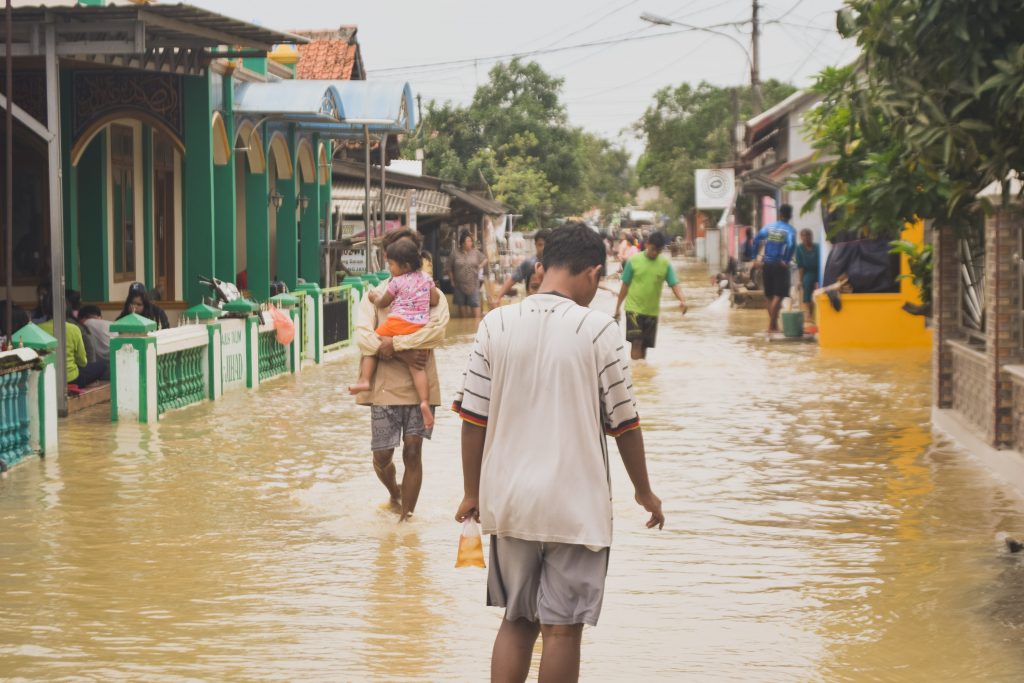By Dr Sarah Cumbers, Director of Evidence and Insight at Lloyd’s Register Foundation
Financial security is a crucial aspect of resilience. When people are exposed to a shock or stressor – such as a global recession or a disaster caused by a natural hazard – it can deprive them of their livelihoods.
Lloyd’s Register Foundation World Risk Poll’s latest report ‘A Resilient World? Understanding vulnerability in a changing climate’ has highlighted that people’s ability to withstand the impact of climate change-related disasters is being undermined by a lack of financial resilience.
More than one third (34%) of people across the world said they could only cover their basic needs for less than a month if they lost all their income, including more than one in 10 (12%) who say they could only cover their basic needs for less than a week. According to the Poll, people are most likely to struggle in Southern Asia where 57% could only cover their basic needs for less than a month (including 26% for less than a week) and Northern Africa (49% less than a month, including 24% less than a week).
The results of the Poll show just how vulnerable people across the world are, making financial support key to improving resilience as climate-related crises become more frequent and more severe.
The Poll also found that more than a quarter (27%) of the world’s population has experienced some type of disaster in the past five years, with the most common form of disaster – those caused by flooding or heavy rain – experienced by one in 10 people worldwide (10%). With climate change-related disasters increasing across the world, illustrated most recently by the widespread floods in Pakistan, the Poll’s findings highlight a need for policymakers to work together to ensure people are supported in the event of a crisis.
Regions with better infrastructure and economic security typically score higher on the World Risk Poll Resilience Index, a tool that calculates how equipped people around the world are to handle adversity, based on four distinct aspects of resilience – Individual, Household, Community and Society.
According to the Resilience Index, the top scoring regions – Australia/New Zealand and Northern America – have better-developed infrastructure and higher levels of economic security. The least resilient region, according to the Index, is Central/West Africa – the region where people are also most likely to say they have experienced a disaster caused by flooding, at almost two in five (17%).
While the Resilience Index shows us that those in higher income regions are typically more resilient to disasters, including those caused by climate change, it also highlights resilience strengths in other regions that can be learnt from and built on with appropriate investment.
These are just some of the findings are based on over 125,000 interviews conducted by Gallup in 121 countries, including places where little or no official data exists, giving a voice to millions of the world’s citizens.
As the effects of climate change continue to make headlines, we need to invest in equitable resilience that protects people from severe weather and other hazards, no matter who they are or where they live. It is a critical vulnerability that so many people around the world would be left financially exposed in the event of a disaster, and so this report should prompt policymakers, development agencies and technical experts to work together to identify vulnerable communities and work with them to develop strategies to cope with large-scale hazards.
Lloyd’s Register Foundation is taking the World Risk Poll findings to the Interactive Booth in Resilience Hub at COP 27 from 14-17 November, where visitors can learn more about the data to help them identify vulnerabilities and take action to make people safer.

